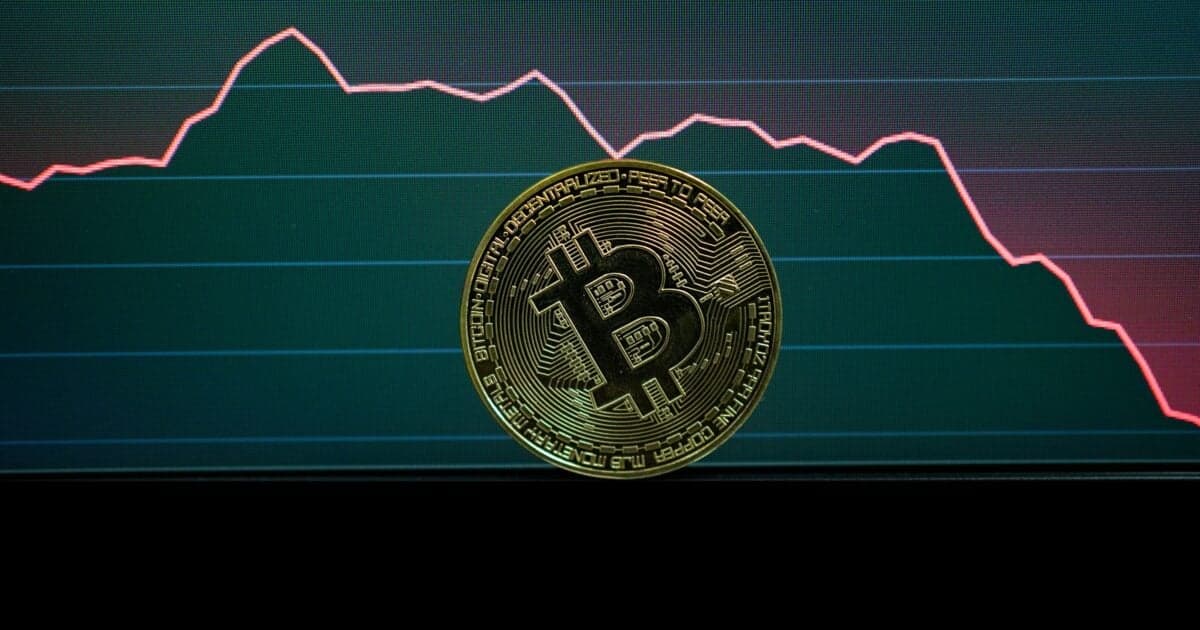Don't Be Fooled by GameStop's Crypto Move

When companies are struggling, there are a few popular ways executives can try to turn around the decline in share price. They can lay off employees and cut costs, sell off parts of the business or acquire a company, or even buy back shares of their own stock (if they have the cash).
But there are other ways for them to boost demand for shares without touching the operations of the company: Find a trendy gimmick and attach themselves to it.
Think back to the dot-com bubble of the late '90s. Hundreds of companies added ".com" to their names to take advantage of investor interest in Internet companies. And after the bubble popped, dozens of companies removed ".com" from their names.
The same thing happened during the first bitcoin bubble in 2017, when companies pivoted to take advantage of investor demand for cryptocurrency companies. A prime example here was Long Island Iced Tea, a beverage company, which became "Long Blockchain."
Shares of Long Blockchain surged as much as 380% following the announcement, even though the underlying business didn't change. And the gimmick only worked for so long. Shares were eventually delisted from the Nasdaq exchange in 2018.
So, if a company's management team doesn't want to change the operations, it can try to appeal to investors by connecting to the hot themes and headlines at the time.
Last week, video-game retailer GameStop (GME) made headlines again. And it's not for a strong business. Instead, GameStop has a new way to try to drum up interest for its shares. And it will not end well for any investors chasing the stock on the news.
To see why, let's get into the troubles GameStop faces...
GameStop's Declining Business
In late March, GameStop reported its fourth-quarter and full-year results for 2024. Last year, sales fell nearly 30% to $3.82 billion – the lowest level since 2006.
And this wasn’t just a single bad year. Sales have declined in five of the past six years. And while it recently turned back to profitability over the past two years, it had been running at huge losses since 2018.
Even with the recent flip to profits, GameStop has burned through a lot of cash over the past five years. Since 2020, GameStop has run at a cumulative free-cash-flow ("FCF") deficit of nearly $860 million.
Simply put, GameStop's core business is dying.
Video-game consoles now have online stores that make it easier to buy games and download them straight to the console. As recently as 2023, nearly 95% of all video-game sales were digital, instead of the physical copies sold at GameStop.
That showed up in its share price. Before 2020, GameStop's stock peaked in 2013 and had been in a steady decline for years afterward. At its 2020 lows, the stock was down more than 90% from its all-time high.
So, GameStop had to figure out a different way to boost its share price.
GameStop's Meme Stock Revival
GameStop stopped relying on its operations to generate shareholder value around 2021. Back then, GameStop was the poster child for the meme stock frenzy in 2020 and early 2021.
Retail investors, inspired by Keith Gill (better known as "Roaring Kitty") and the Reddit page called WallStreetBets, piled into the stock. GameStop soared from around $1 per share in the summer of 2020 to more than $86 per share (adjusted for stock splits) by January 2021.
The surge even forced Melvin Capital – a hedge fund that was short the shares – to close its doors after suffering $7 billion in losses on its GameStop trade.
The retail interest didn't last long. The stock is now down more than 60% from those January 2021 highs.
Even with the company's operational struggles, the stock is still more than 20 times higher than it was in 2020.
GameStop played the incredible demand for its stock perfectly – offering new shares to retail investors and putting cash on its balance sheet. Shares outstanding have gone from 258 million in March 2020 to nearly 450 million by the end of 2024.
That has helped GameStop's cash position swell from $500 million at the end of 2020 to $4.8 billion today. But remember, that growth hasn't come from an excellent business. It has come through diluting existing shareholders and taking advantage of the meme stock frenzy.
And now, GameStop is trying a new trick...
Why GameStop Turned to Bitcoin
GameStop's financial results aren't moving the stock these days. Alongside the earnings release, GameStop announced that it will buy bitcoin to hold on to its balance sheet. And it raised $1.3 billion through convertible bonds to fund its bitcoin purchases.
Last week, GameStop completed its first bitcoin purchase, buying 4,710 bitcoin. The company didn't disclose the price it paid, but the position is worth about $500 million with bitcoin above $100,000 today.
According to Reuters, seven publicly traded U.S. companies have also acquired bitcoin. Three of those seven are bitcoin miners, meaning they just continue to hold the bitcoin they mine instead of selling it, and two are cryptocurrency platforms.
The last two are Tesla (TSLA) and Strategy (MSTR). The trade has worked out for Strategy (formerly MicroStrategy)...
As a business, Strategy's sales have fallen for four straight years, while it has run at a loss (as measured by earnings before interest, taxes, depreciation, and amortization) over the same period. And it has burned through cash – rather than reporting positive FCF – for five straight years.
Since the software company began buying bitcoin in August 2020, the stock has soared nearly 3,000%. And at its peak last November, the stock was up 3,600%! Today, the company boasts a market cap of more than $79 billion.
That's not bad for a company with only $463 million in sales last year. Of course, the value in Strategy's stock now comes from its bitcoin holdings, not the underlying software.
GameStop is now trying the same thing. And it has worked so far... The stock is up more than 20% in the two months since announcing that it will start buying bitcoin.
Does Bitcoin Make GameStop a Buy?
We've already established that GameStop's business is in decline. Sales are in freefall and it's burning through cash. Even so, GameStop gets a B for Financials on our proprietary Stansberry Score – thanks to its recent flip to profitability.
But it gets a D grade for Capital Efficiency and a C grade for Valuation. Overall, GameStop ranks 2,078 out of the 4,600-plus stocks we track. That's not exactly the hallmark of a stock you should be rushing out to buy and hold for the long term.
And GameStop still faces a huge problem in its core business. Folks just aren't going out and buying physical discs for video games. So don't let the recent investment in bitcoin (and any future crypto purchases) distract from the reality that GameStop is struggling.
If you're looking into GameStop for its new exposure to bitcoin, there are better ways to invest in the cryptocurrency.
Companies like PayPal (PYPL) and Block (XYZ) have made it easier than ever to buy bitcoin outright. And there are even exchange-traded funds – like the iShares Bitcoin Trust Fund (IBIT) – that can provide easy and complete exposure to bitcoin... without the failing video-game retail business.
GameStop's shares may see short-term spikes when retail interest picks up every now and again (like when Gill posts anything GameStop related on social platform X).
But in the long term, GameStop's stock is one to avoid.
Regards,
Nick Koziol




